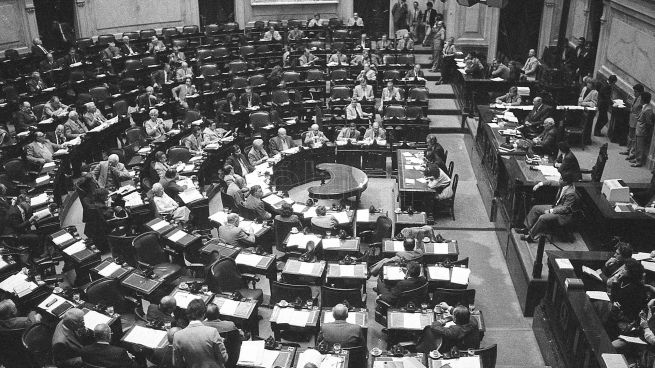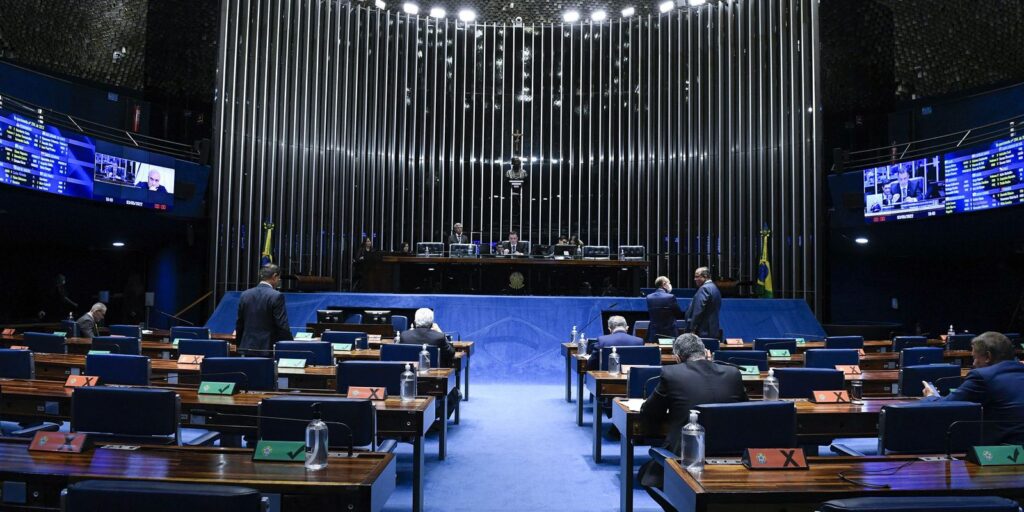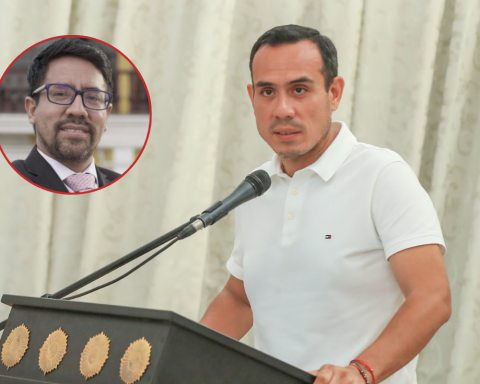The June 8, 1987 the legislates the tion of Argentina took a transcendental step by sanctioning a law that allowed the dissolution of marriagea regulation that, like the voluntary interruption of pregnancy (IVE) and equal marriage, was strongly resisted by conservative sectors and that gave a legal framework to a situation that in fact already occurred frequently.
In the Argentina of 1800 the canon law and until 1884, with the creation of the first Civil Registry, all statistics of births, marriages and deaths were administered by the Catholic Church.
As for these records, the government offices were gradually displacing the parish scheme in force since colonial times and in 1888 the sanction of Law 2393 of Civil Marriage took a new step in favor of the State in this dispute of political and economic power against to the Church, taking control of the registration of births, unions and deaths.
“Although civil marriage replaced the canon law in force until now, the power of the Church was very strong,” he said in dialogue with Télam Sandra Dell Oro, director of Institute of Gender Policies of the Bar Association of the Buenos Aires party of San Martín and specified that the regulations that remained in force for almost a century “established the indissolubility of marriage.”
However, ‘for life’ or ‘until death do us part’ was not the reality that millions of Argentine men and women lived in, given that there were “de facto separations, many people went back to form couples, lived together and even had children, but they did not have a legal framework like the one granted to them by the institution of marriage,” the specialist pointed out.
Seeking to respond to this reality, in 1954 Law 14,394 of the Family and Minority Legal Regime was enacted, which in its article 31 introduced the figure of “binding divorce for those cases that had obtained the separation of bodies with at least one year in advance”; however, less than a year after its regulation, the regulations were repealed by the de facto government in 1956.
“Later other laws began to appear,” explained the specialist in family law, specifying that “the Reform (of the Civil Code) of 1968 brought many changes, it introduced personal separation by joint filing, which was really an advance for that time.”
Likewise, the lawyer pointed out that although this reform “modernized the code, the most important thing came with democracy” and recalled that before Congress passed Law 23,515 that allows the dissolution of the marriage bond, the Supreme Court “declared the Civil Marriage Law unconstitutional” in the Sejean ruling of 1986.

“Undoubtedly this case set a precedent, it is considered doctrine, it was a man who denounced the unconstitutionality of article 64 since he was married, separated and returned to form a couple with a woman also separated with whom he had a daughter, but the law did not allow him remarry,” recalled Dell Oro.
Finally, and after an enormous campaign against it by the Church and conservative sectors of power, on June 8, 1987, the National Congress enacted Law 23,515, popularly known as the Divorce Lawwhich allowed the dissolution of the conjugal union and which entered into force four days later after its publication in the Official Gazette.
“During the debate on the premises, the Church organized many actions against the Law, I think even a procession to Luján, something very similar to what happened a few years ago during the debate over the IVE,” warned the lawyer, recalling that in both debates “attempts were made to establish the slogan that the approval of the law was harmful to society.”
“The truth is that in fact people broke the linkcould not do it legally, but in fact it was done and it caused a lot of families not to have that protection or legal framework that marriage granted them, neither to the couples nor to their children,” Dell Oro pointed out and pointed out that “it is something very difficult to imagine from a distance, but children born out of wedlock were considered illegitimate”.
In this frame, unions between people who had already been married were frequent, they were part of the social fabric, but without a legal framework there were “procedures, inheritances and situations that could not be resolved, which is why the sanction of 23,515 was very important.”
Thirty-five years ago, progress in Argentine legislation gave protection to a few million people, which was reflected almost immediately in the divorce registrations received by the Civil Registry of the city of Buenos Aires, which averaged more than 3,000 per year, to 13,000 in 1987 and 11,000 in 1988, the same as in 1989.
Although the regulations tried to provide a response to a specific situation, “the law that we could have at that time was approved, allowing a situation that in fact occurred, but established a list of probable causes for divorce and, therefore, a culprit” .
“Serious insults, adultery, voluntary and malicious abandonment, were some of the causes and that the applicant had to prove, for this they had to go through a slow, complex judicial process and that was looking for a ‘guilty'”, explained the specialist and remarked that “The one who was ‘innocent’ in the divorce, in the personal separation was entitled to an alimony.”
The lawyer also explained that Law 23,515 provided for “the joint presentation, that is, you could expose an impossibility of coexistence or cohabitation, which was ultimately the most used route.”
The law -according to the specialist- established a mediation process that aimed at reconciling the relationship and maintained the double regime of personal separation, that is, the separation of assets was carried out and it gave proof of the legal action and, if required, could be turned “into a divorce decree”.
“What you had before was quite an advance, but it could be improved, there was no dissolution of the link at the request of only one of the parties,” Dell Oro warned and compared that regulation with the IVE “there was a lot of debate, with different projects, surely there could be a better one, but the important thing was to get approval to decriminalize something that actually happens”.
In 2014, a new reform of the Civil and Commercial Code of the Nation established the possibility of filing for divorce unilaterally “one of the two people files for divorce and it is not necessary to explain why or find a guilty party, it is only necessary communicate to the other party”, explained the lawyer.


















